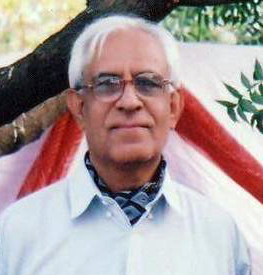The search for the ultimate truth can for all practical purposes be considered as the search for the `Probable ultimate truth`.
Getting at the ultimate truth is not easy and it is expected that it will take a long long time….perhaps millions of years to do so.
But can our human race survive that long?
It looks as if an urgency has been created by `The Situation` on the Planet Earth, viz the very high probability of the human race getting extinct by `self destruction` within the next three or four centuries, which is considered the `danger zone` here. The second law of thermodynamics is being played out to perfection by the human civilization on the planet Earth. Its entropy (disorder and chaos) is forever increasing.
It is a possibility, that the knowledge of the `Probable Ultimate Truth` and its acceptance, may provide us with a good chance to reverse the direction of this entropy, and enable us to survive the `danger zone` and come out unscathed.
`Six Words` is an autobiography that begins at the big bang, as I entered the Universe in the form of a Quark, and covers everything of consequence that happened to me from that time till now including my experience in a Supernova. It deals with Philosophy, and attempts to arrive at a philosophical model, that has a good chance to lead us towards that `Probable Ultimate Truth`.
These ‘Six Words’, as words are simple. Put together these combine into a simple sentence. How do they lead to (or ARE) the Probable Ultimate Truth? This book is an exploration into that realization. If these words are announced as a matter of fact, they are unlikely to create an impact, let alone cause euphoria. “What wishful thinking…” “Too good to be true…””Can’t be true…””Can never be proved…” These could be the expected reactions. In excess of 200 pages needed to be written to convince the reader that these words make sense, and that there is a good chance they might be true.
About one fourth of this autobiography is made up of extracts from famous books and quotations and statements by famous Scientists and Philosophers, who have immensely inspired me, and of whom I am in very deep admiration.
These scientists and philosophers on one hand and my deep appreciation of Quantum Physics and Cosmology on the other have led me to write this autobiography.
However, I am neither a Qualified Quantum Physicist nor a Cosmologist, or a philosopher and It was a daunting task to write on these subjects, merely by having read a lot of books.
On top of that …Quantum Physics is absolutely counterintuitive. It defies common sense. We ask the question: `How can it be like that?`, but there is no convincing answer. It just happens that way, and there is no explanation for it. Quantum particles move about here and there, individually on their own with complete disregard to the phenomenon of cause and effect.
There is however a certain guiding force!.. I understood this guiding force, and with this understanding, I knew how to proceed.
Don`t worry, though.. I have not dealt with the Mathematics of Quantum Physics, nothing much about the mathematical formulation of the quantum theory. That part of QP is meant for the specialists who intend to make use of the subject for Practical Purposes.
Our interest here is in the Philosophy of quantum physics (and of course `Cosmology` ), we are more interested in understanding `What happens exactly at the Quantum level? `, it doesn`t matter – for the time being – if it makes sense or not, and then trying to understand How does it happen.
So, I spread out all the books – I have plenty of them – on my study table and then prepared a sequential history of quantum Physics as it developed over the years with particular stress on the `Giant leaps of imagination` experienced by the great scientists of that period when this branch of Science took centre stage in World history. Indeed centuries later when the important events of the first half of the 20th century are written about…the development of Quantum Physics will be considered of greater significance than World Wars 1 and 2.
The `Six words` deals with a lot of complex Science and Philosophy sections. However, don`t worry too much, just read the complex parts once, maybe twice, maybe thrice, just get used to them. Do remember, they are complex for me too.
